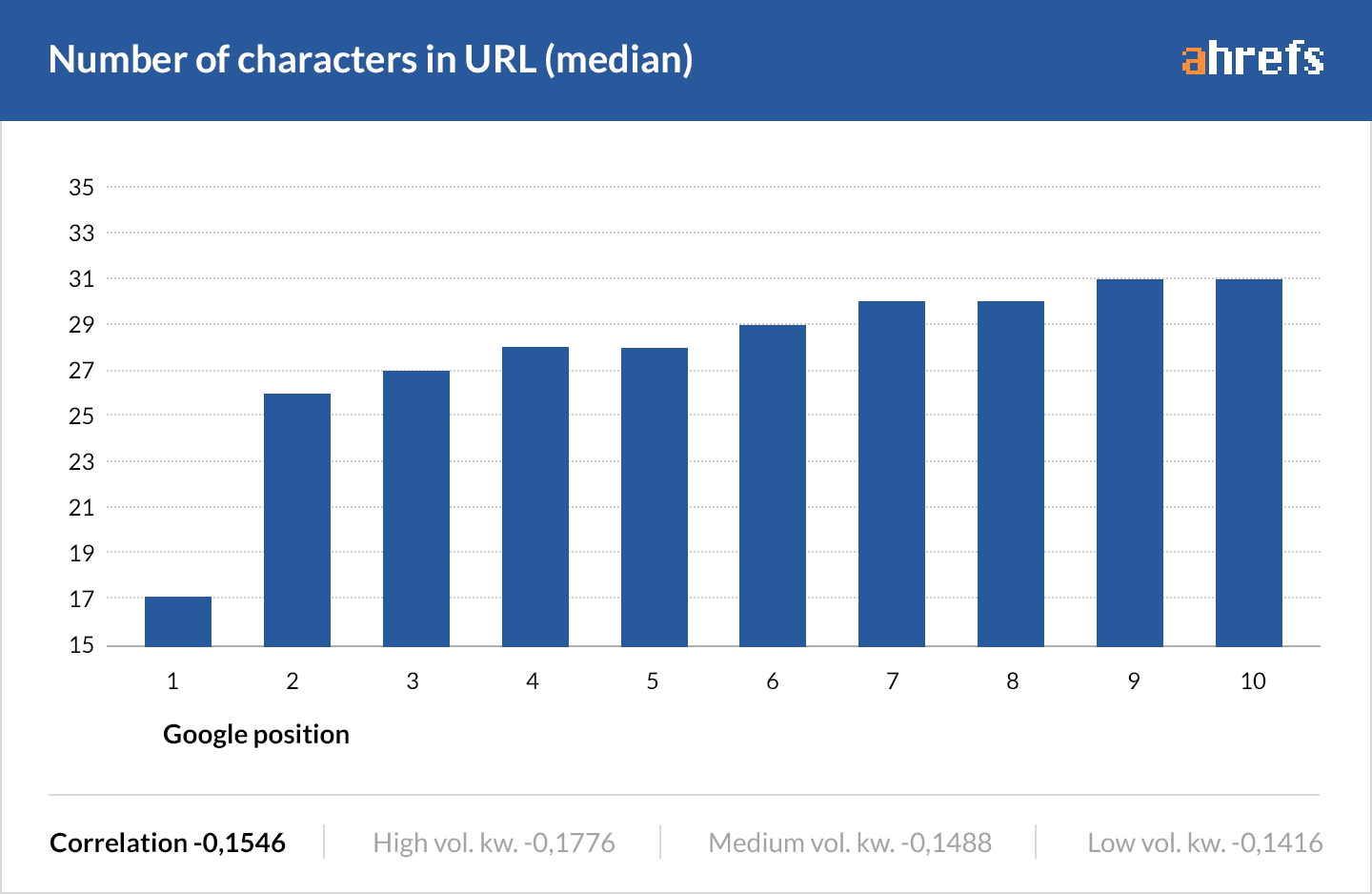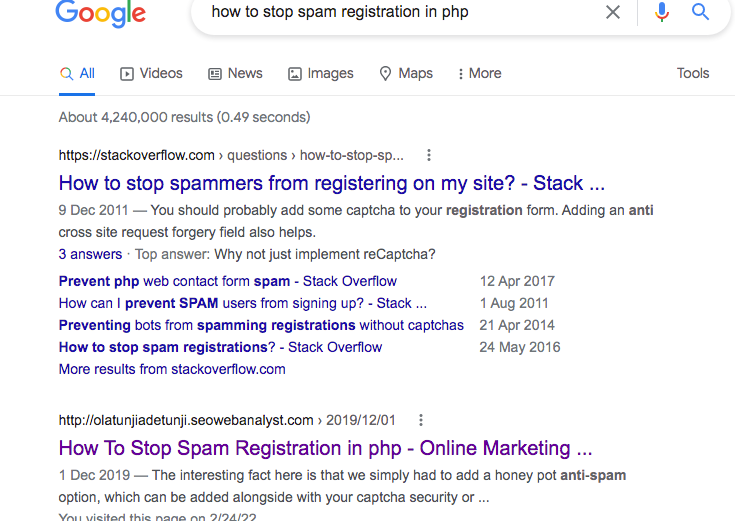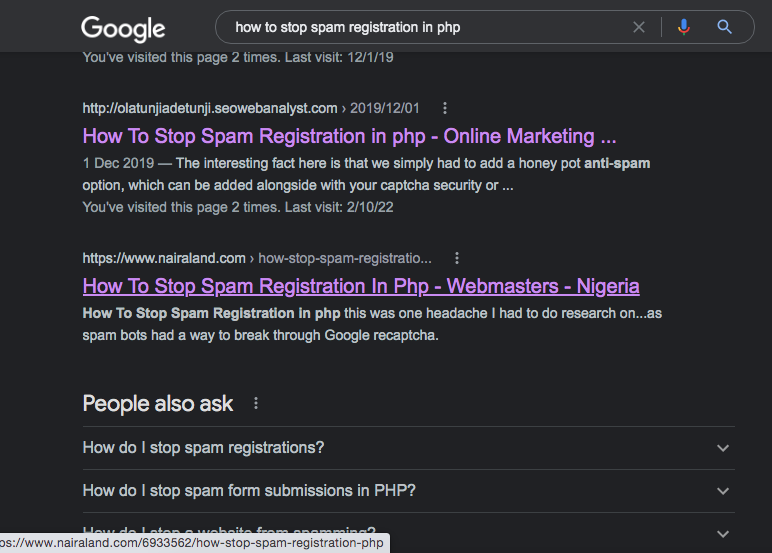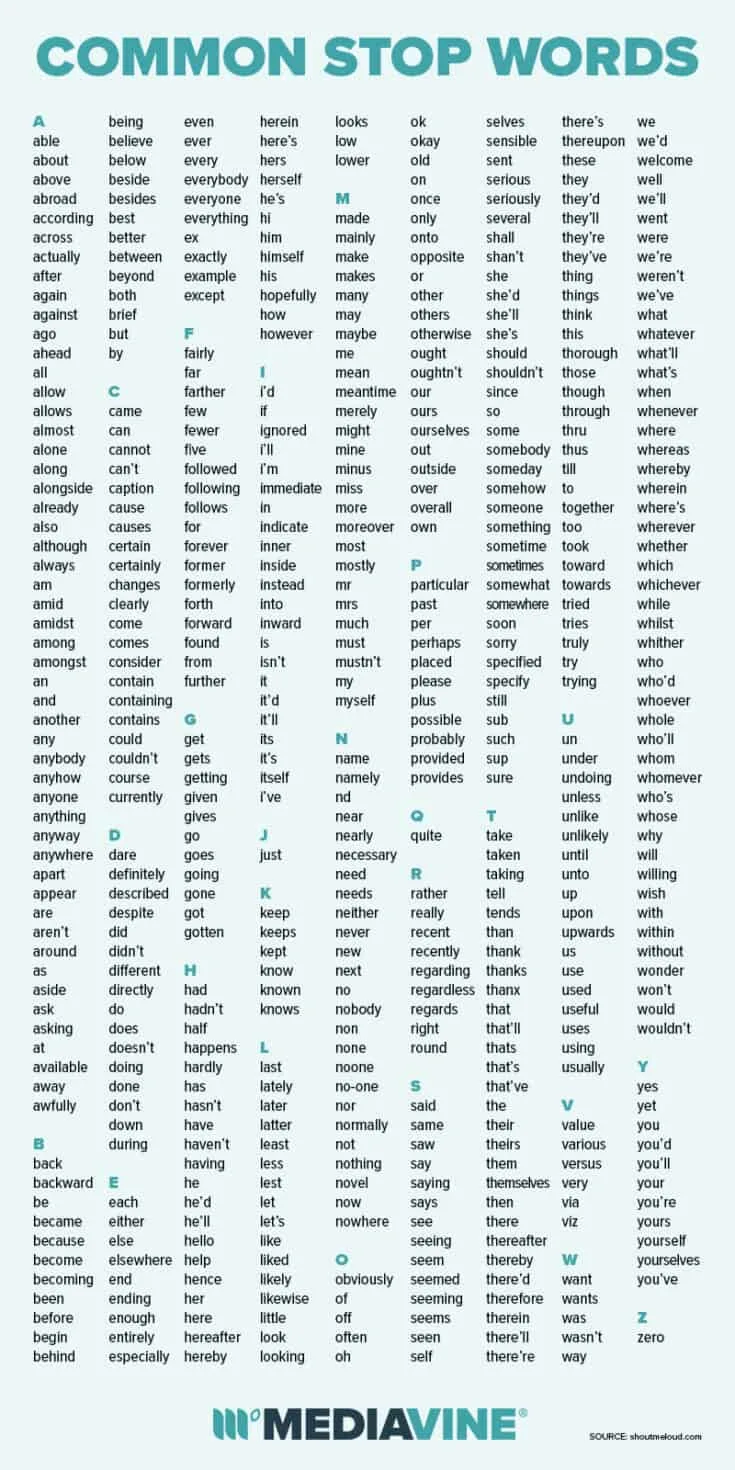

2022-02-26 | 1481 ![]() Print
Print ![]() PDF
PDF
Have you ever wondered what words are key to SEO or have more prominence with search engines like Google, and how can you implement them relatively in your keyword ranking with Google SEO bid?
The essence of the SEO community targetting stop words for SEO is basically to try and optimize the pixel space or length space they have with their URL and Title tag of a web page they are trying to rank on search engines, and the fact that search engines place no priority values on stop words in order to speed up search results or to save disk space.

Stop words are referred to as common words that are mostly used in making sentences, they can be found in your daily articles, prepositions, and phrases that connect keywords together and help us form complete, coherent sentences.
Stop words are any word in a stop list that are filtered out before or after processing of natural language data. There is no single universal list of stop words used by all-natural language processing tools, nor any agreed-upon rules for identifying stop words, and indeed not all tools even use such a list...as defined by wikipedia
From Wikipedia definition, we can deduce that these words are much and collectively cannot be summed up, so why bother or lay so much emphasis on them?
To be honest, common words are practically needed in content marketing and the use of these words is colloquial to the English language itself, so advising against the use of stop words will not be of interest to me, but rather the optimization of the use of SEO Stop Words in areas where deemed fit.
Also, the use of SEO stop words doesn't just stop at content writing but they extend majorly to Title descriptions and web page URLs.
The general advice from the SEO community has been to remove stop words in important, on-page areas with limited space. This is to facilitate the optimization of these two SEO factors, by removing common words that Google will not count as a correlation to your targeted keyword. These two SEO factors are your title meta tag and Domain/URL Length.
It's a rule of thumb to have your keywords in these two SEO factors and well positioned too, but in most cases, we find ourselves with limited space due to the length rule, although Google has made a statement about URL length not having a threat to ranking. It has been observed via studies that shorter URLs tend to rank better than their longer counterpart.

image courtesy: backlinko.com
This is to further strengthen the belief in using shorter characters, and what better way's to do this if not by discarding common words that are not relevant for Google SEO.
In another argument, we can state the use of common words in Title or URL helps in the form of Keyword density, by reducing the effect of having over-optimized keywords or exact match keyword ranking.
A quick reference to the image below will reveal that having stop words in your Title headline, which are used as URL slugs on WordPress and other cms platforms can be good for targeting long-tail keywords.

From the image above, both my URL and Title tag are of the same word and character count, you can also see some stop words in there which are, "How",
"To" and "In". They practically aided me in ranking for the exact match keyword ranking for this search query, and also for "How To Stop Spam Registration" , this is to highlight the powerful use of the stop word in SEO, so when people are making irrelevant speculations about this topic, I simply tell them to let it be.
For instance, if I were to remove these stop words from my URL slug, then my URL will read "Stop Spam Registration PHP" or on a lighter note something similar to the URL of the third-ranking website on Google.

I will like to mention that the 3rd ranking website was part of my content syndication process for the same page that is ranking above it, fun fact the same website ranks 10 steps lower for a shorter version of a broader match long-tail keyword search phrase and not to mention I am yet to add HTTPS sitewide on all our subdomain extensions ie "How To Stop Spam Registration" you can read more on the topic How to do content syndication for better insight. So having that included should be the final boost stage for our content SEO, as I gradually work around optimizing each content page and delivering quality content.
I hope these illustrations have given you the information you need to understand the impact and usage of SEO Stop Words and their relationship with Search Engines like Google.

Image Courtesy: mediavine.com
Conclusion
If you will want my verdict on this Google SEO Stop Word topic, I will say this, Let it be. You simply can't do without them, and for those that love to overdo things, you can actually remove them from your URL, it makes no difference if your content is "KING" of high quality. Why I have left them has been explained above, just in case you missed it, I do so because it helps to balance my keyword density (Frequency) and also propels me for other related keyword phrases I may not be aiming for, eg we all know that Google and the rest ignore them, so adding them will reduce your keyword frequency.
Lastly, if you must work on your content delivery in respect to STOP WORDS, you can actually work on reducing their occurrence, but then you must have it in mind you might just be over-optimizing your content for a specific keyword.

I am a seo web analyst and have a love for anything online marketing. Have been able to perform researches using the built up internet marketing tool; seo web analyst as a case study and will be using the web marketing tool (platform).
How To Fix GA4 Showing Wrong Domain Traffic
How To Reactivate Google Adsense Account
How Do You Write Pitch Deck That Wins Investors
Effective Lead Magnet Funnel Examples For Businesses
How To Promote FMCG Products Using Digital Marketing
The Main Objectives Of SEO in Digital Marketing
How Artificial Intelligence Is Transforming Digital Marketing
Google CEO Sundar Pichai: Search will profoundly change in 2025
3 Most Important Business Growth Strategies
Top 20 Work From Home Job Skills